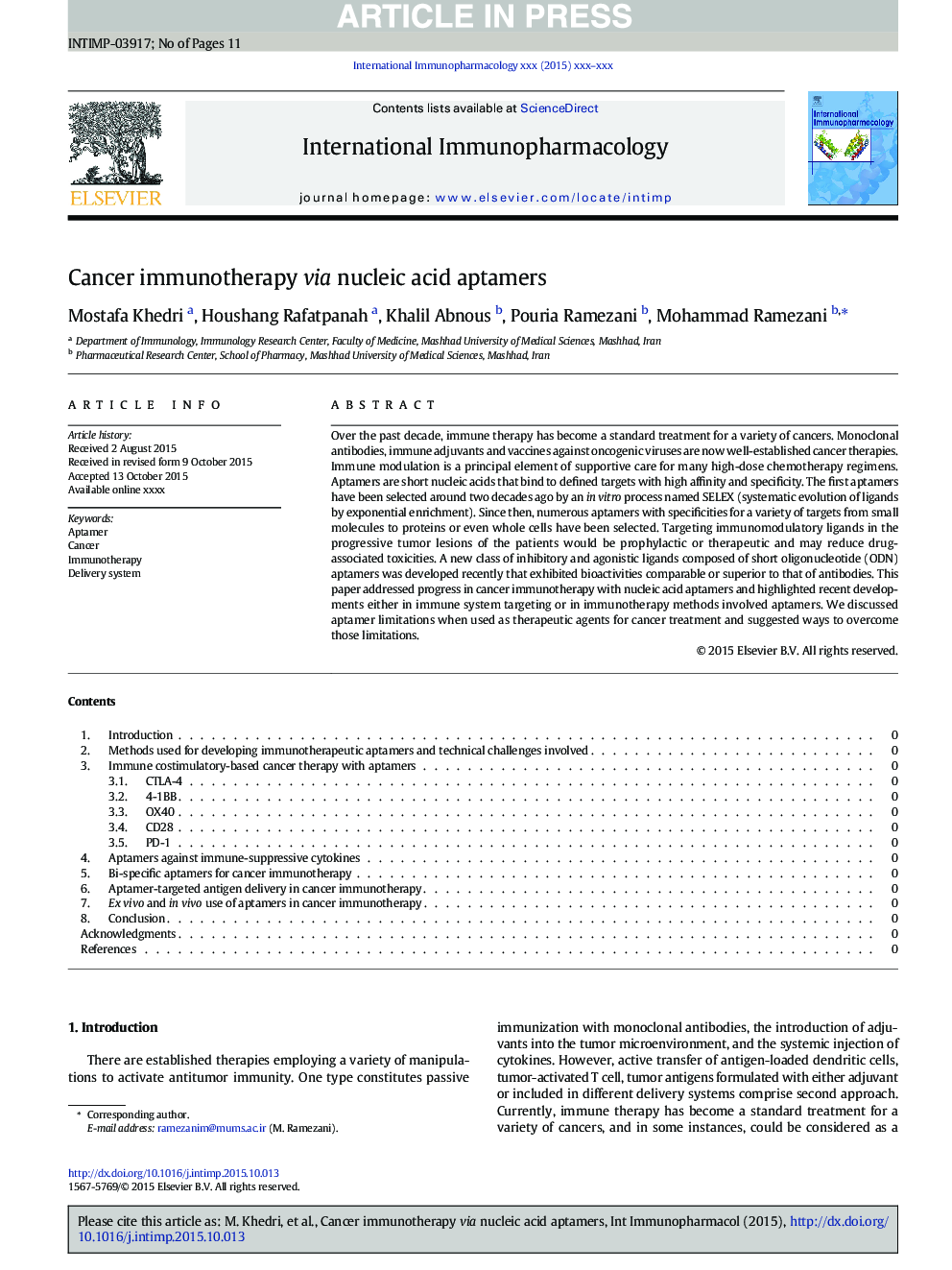| Article ID | Journal | Published Year | Pages | File Type |
|---|---|---|---|---|
| 5832336 | International Immunopharmacology | 2015 | 11 Pages |
Abstract
Over the past decade, immune therapy has become a standard treatment for a variety of cancers. Monoclonal antibodies, immune adjuvants and vaccines against oncogenic viruses are now well-established cancer therapies. Immune modulation is a principal element of supportive care for many high-dose chemotherapy regimens. Aptamers are short nucleic acids that bind to defined targets with high affinity and specificity. The first aptamers have been selected around two decades ago by an in vitro process named SELEX (systematic evolution of ligands by exponential enrichment). Since then, numerous aptamers with specificities for a variety of targets from small molecules to proteins or even whole cells have been selected. Targeting immunomodulatory ligands in the progressive tumor lesions of the patients would be prophylactic or therapeutic and may reduce drug-associated toxicities. A new class of inhibitory and agonistic ligands composed of short oligonucleotide (ODN) aptamers was developed recently that exhibited bioactivities comparable or superior to that of antibodies. This paper addressed progress in cancer immunotherapy with nucleic acid aptamers and highlighted recent developments either in immune system targeting or in immunotherapy methods involved aptamers. We discussed aptamer limitations when used as therapeutic agents for cancer treatment and suggested ways to overcome those limitations.
Related Topics
Life Sciences
Immunology and Microbiology
Immunology
Authors
Mostafa Khedri, Houshang Rafatpanah, Khalil Abnous, Pouria Ramezani, Mohammad Ramezani,
